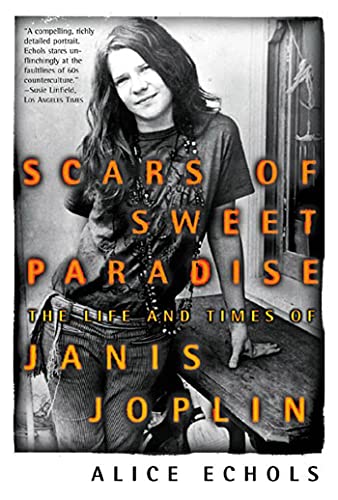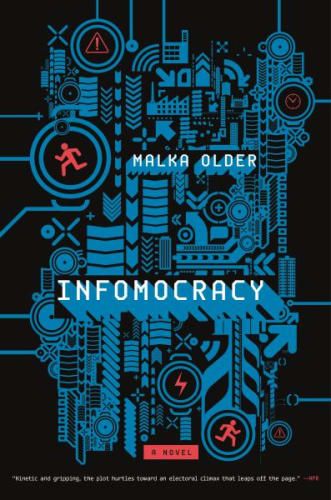One of my all-time favorite singers is Janis Joplin, and like any other esteemed member of The 27 Club there is no shortage of biographies on her. Out of the three in my possession, Alice Echols‘ Scars of Sweet Paradise is my favorite for being incredibly thorough and grounding Joplin’s career in the wider social context of the times. (That said, I have vague aspirations of one day reading Janis: Her Life and Music by Holly George-Warren.) I read it once in high school and felt compelled to revisit it now.
An interesting book to read once at age 17 and again at 37. Two different sides of the 27 club.
It’s a well researched and well documented account of Joplin’s life, with numerous quotes and insights from all kinds of people who knew her, either personally or professionally. I think part of the reason she became one of my all-time favorites was because Echols’ biography immediately revealed someone who went through trials and tribulations not dissimilar from my own: either too precocious or too out of step to connect with her peers, deeply sensitive, struggling to escape the black hole of beauty standards. There was a lot for a teenager in the early 2000s to recognize in teenager life 40-odd years ago. Plus ça change.
There is very little editorializing from Echols, who treads a reasonable middle ground between often polarized camps: Janis as queer icon, Janis as feminist, Janis as promoting, purveying or appropriating Black culture. There’s also enough history and context presented that anyone interested in the fifties and sixties as historical periods would find a lot of value in it (though Echols’ subsequent general history books, such as Shaky Ground or Daring to be Bad, might be an even better bet). Certainly not a must-read biography for the general public but for anyone with the interest, it’s fantastic.




